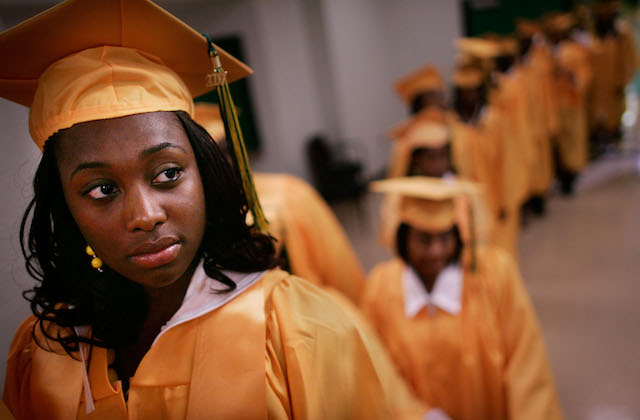A new study from researchers at the Johns Hopkins University’s Krieger School of Arts and Sciences says that when it comes to Black students, a teacher’s racial bias can have a major impact on their academic success.
Researchers analyzed data from the Educational Longitudinal Study of 2002, which followed 8,400 public high school students from 2002 through 2013 and asked math and English teachers, among others, to rate them. For White students, the teachers’ ratings tended to be the same. But for Black students, especially Black boys, researchers saw a large discrepancy in the ratings.
“Who Believes In Me? The Effect Of Student–Teacher Demographic Match On Teacher Expectations” ultimately found that when Black and White teachers are asked to evaluate the same Black student, White teachers are 40 percent less likely to predict that the student will graduate high school and 30 percent less likely to expect them to finish a four-year degree.
The authors concluded that those lowered expectations can actually become self-fulfilling prophecies that hold students back; Black kids with non-Black math or English teachers in the 10th grade were less likely to pick classes that furthered their study in those areas.
“What we find is that White teachers and Black teachers systematically disagree about the exact same student. One of them has to be wrong,” co-author Nicholas Papageorge said in an article posted to a university blog. “If I’m a teacher and decide that a student isn’t any good, I may be communicating that to the student. A teacher telling a student they’re not smart will weigh heavily on how that student feels about their future and perhaps the effort they put into doing well in school.”
The researchers also suggested that this bias goes far beyond the classroom. “While the evidence of systematic racial bias in teachers’ expectations uncovered in the current study are certainly troubling and provocative, they also raise a host of related policy-relevant questions that our research team plans to address in the near future,” says study co-author Seth Gershenson. “For example, we are currently studying the impact of these biased expectations on students’ long-run outcomes, such as educational attainment, labor market success, and interaction with the criminal justice system.”
